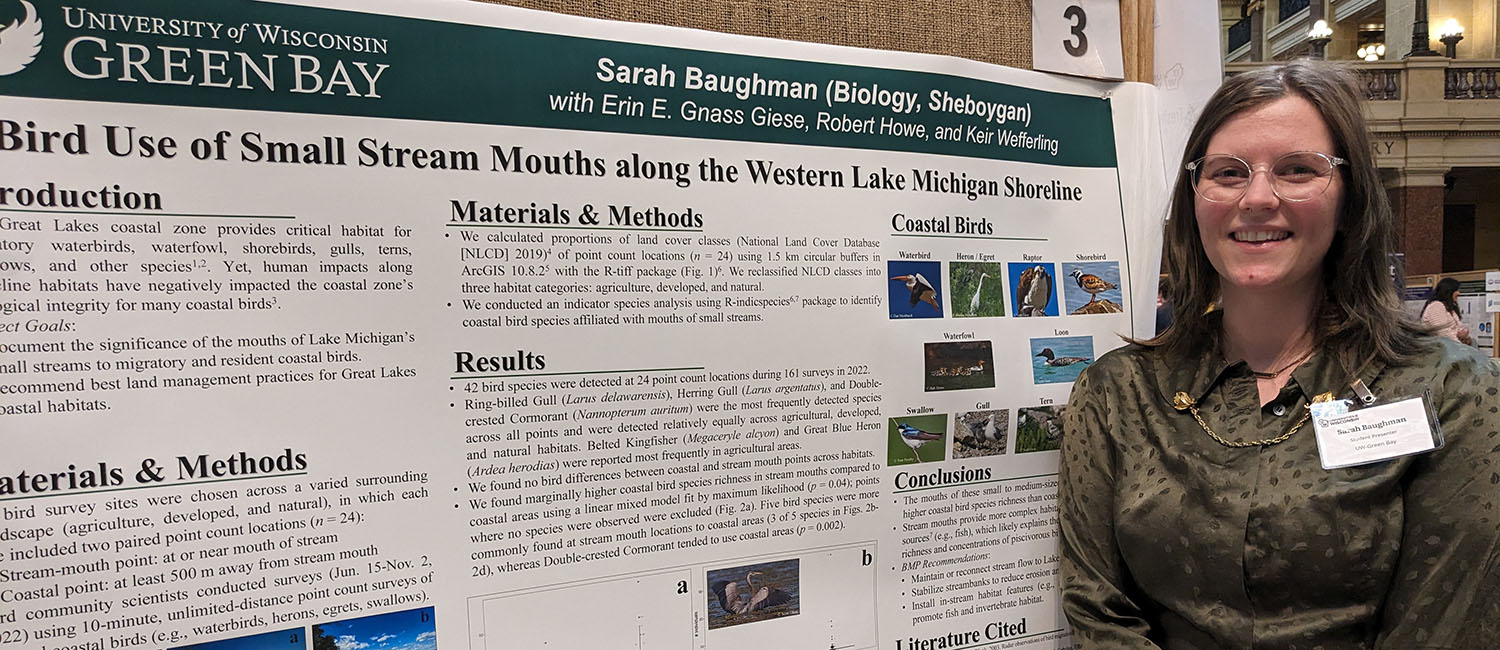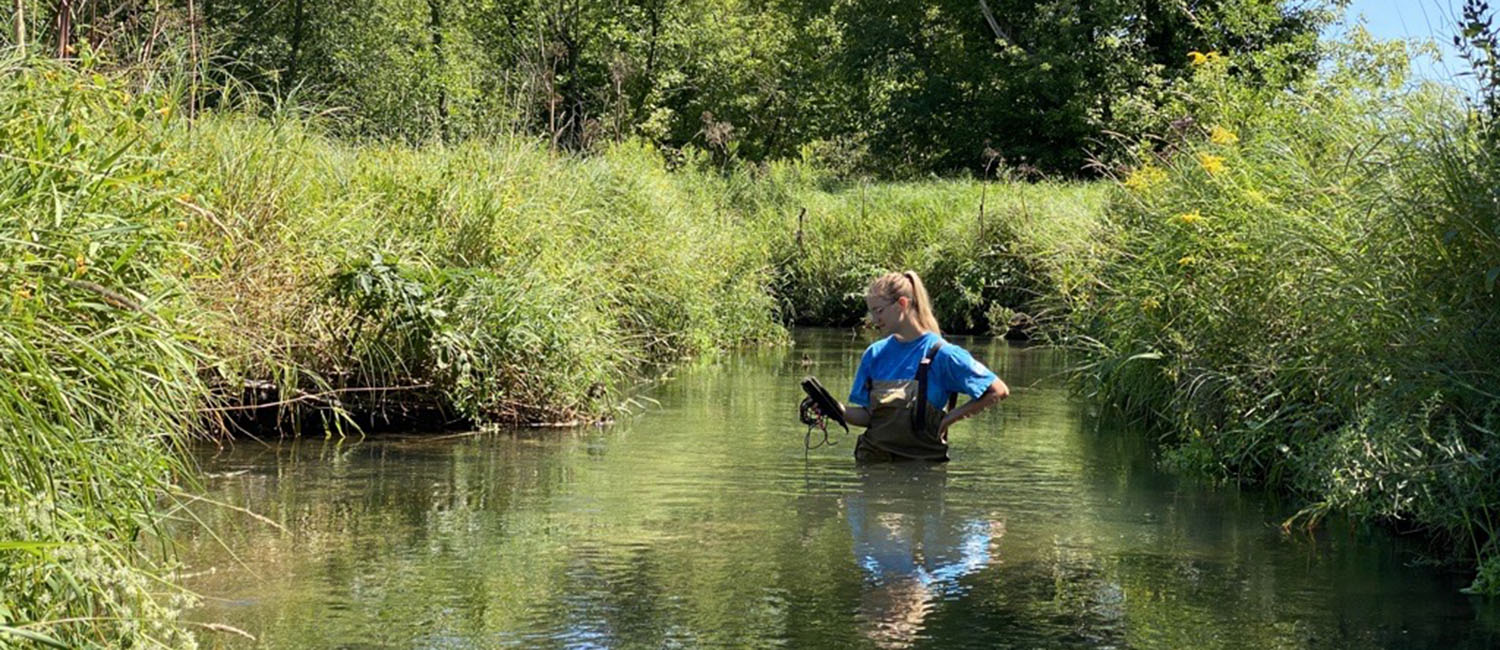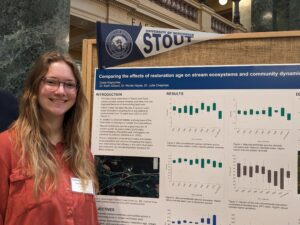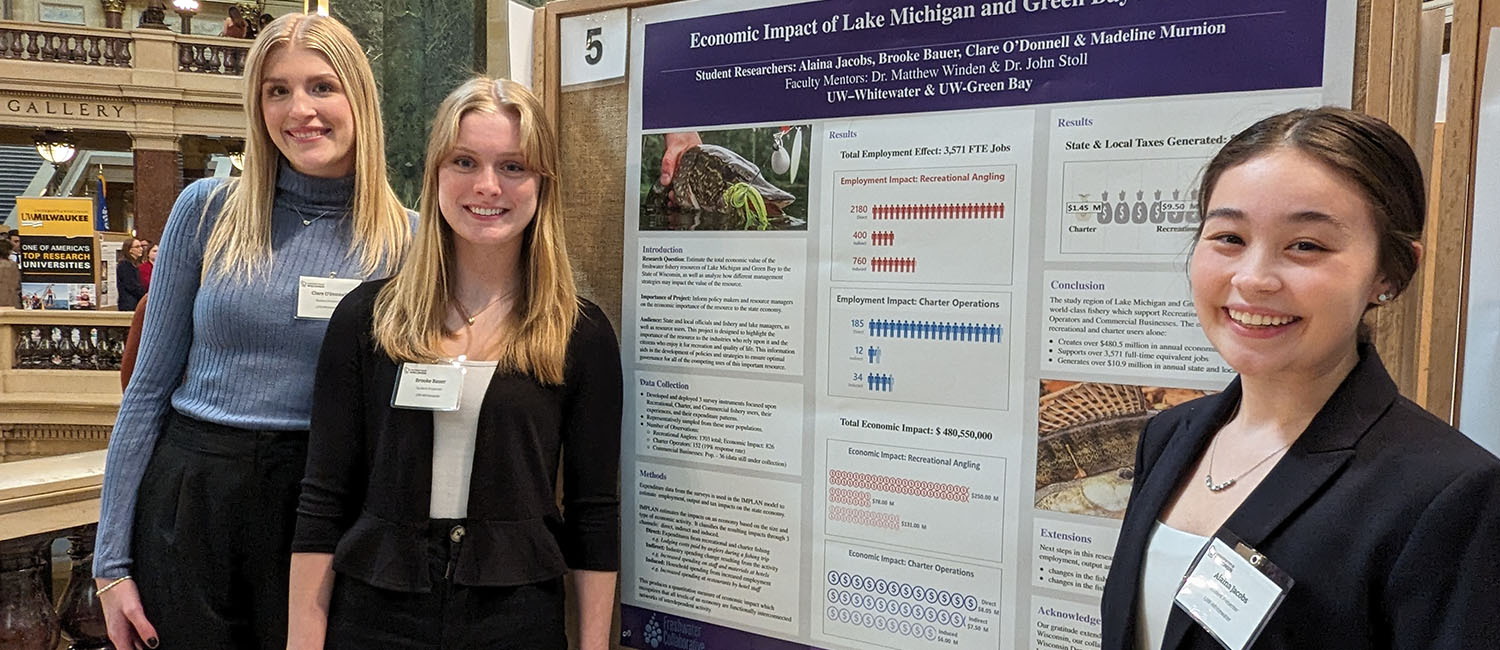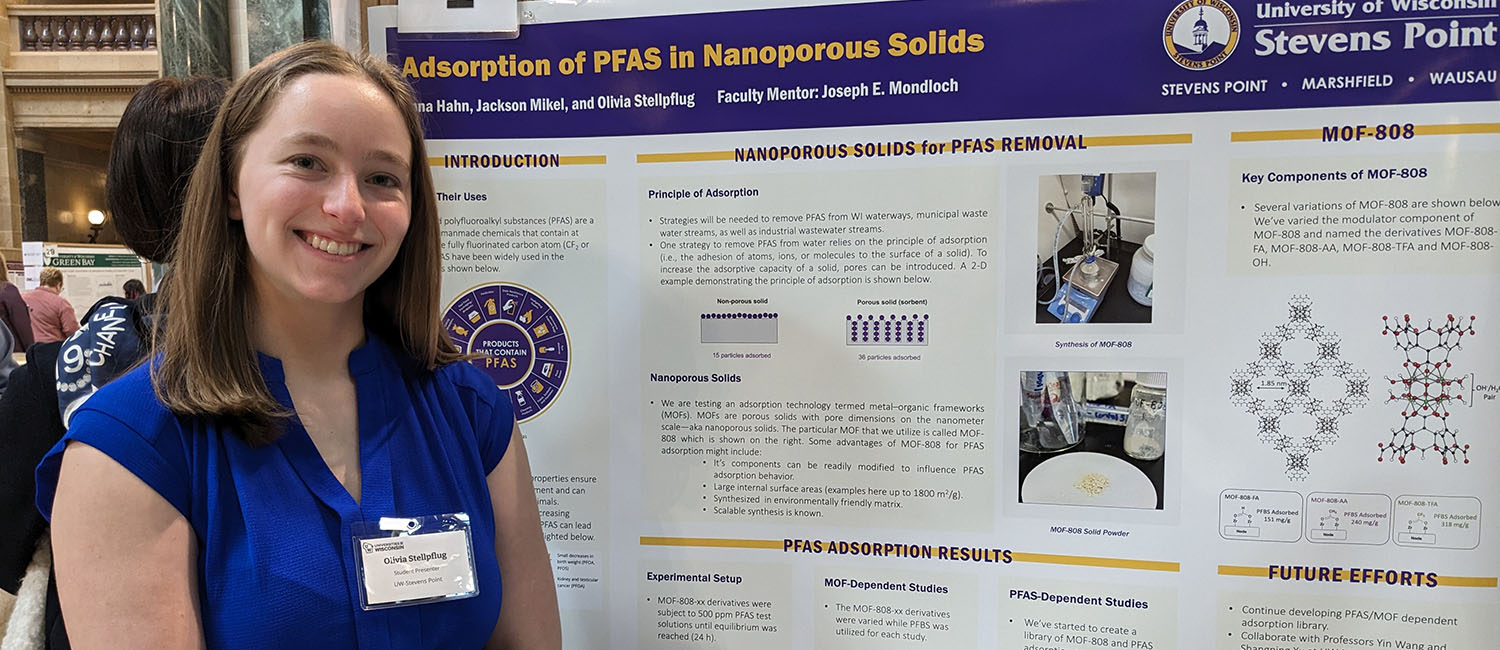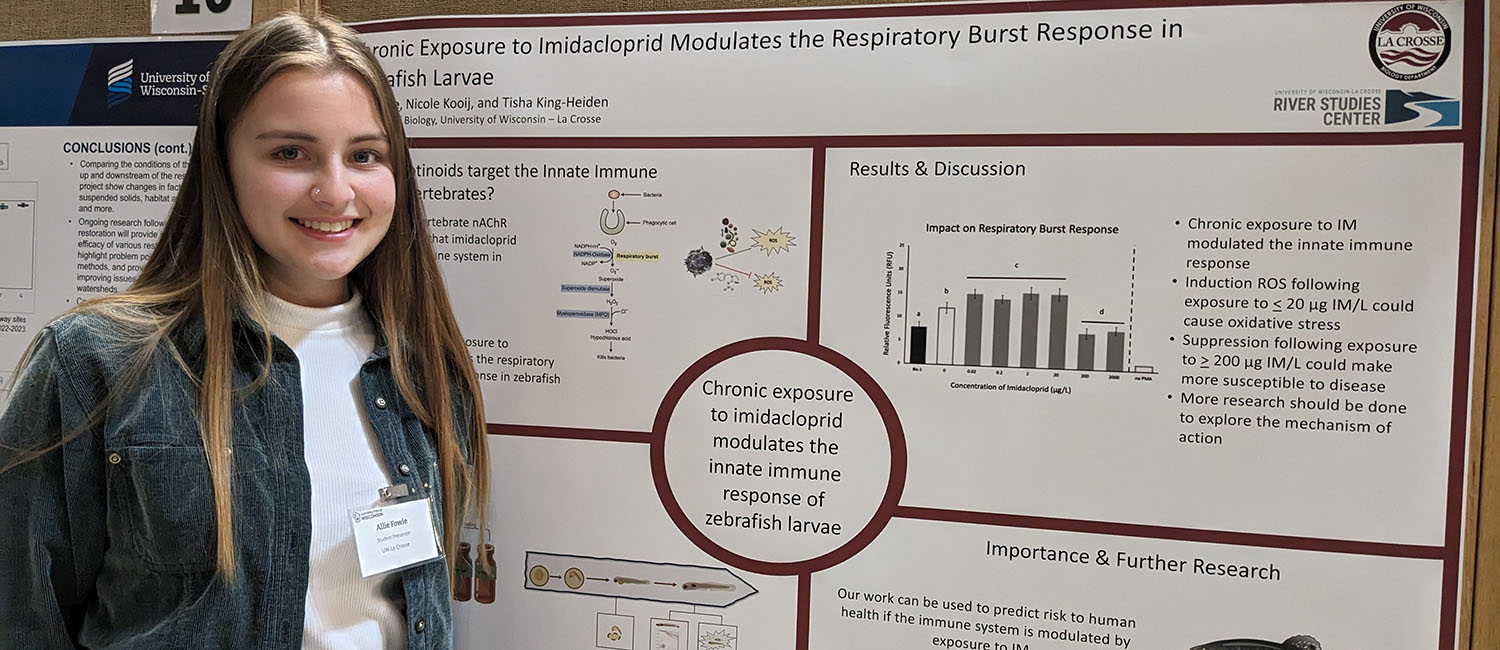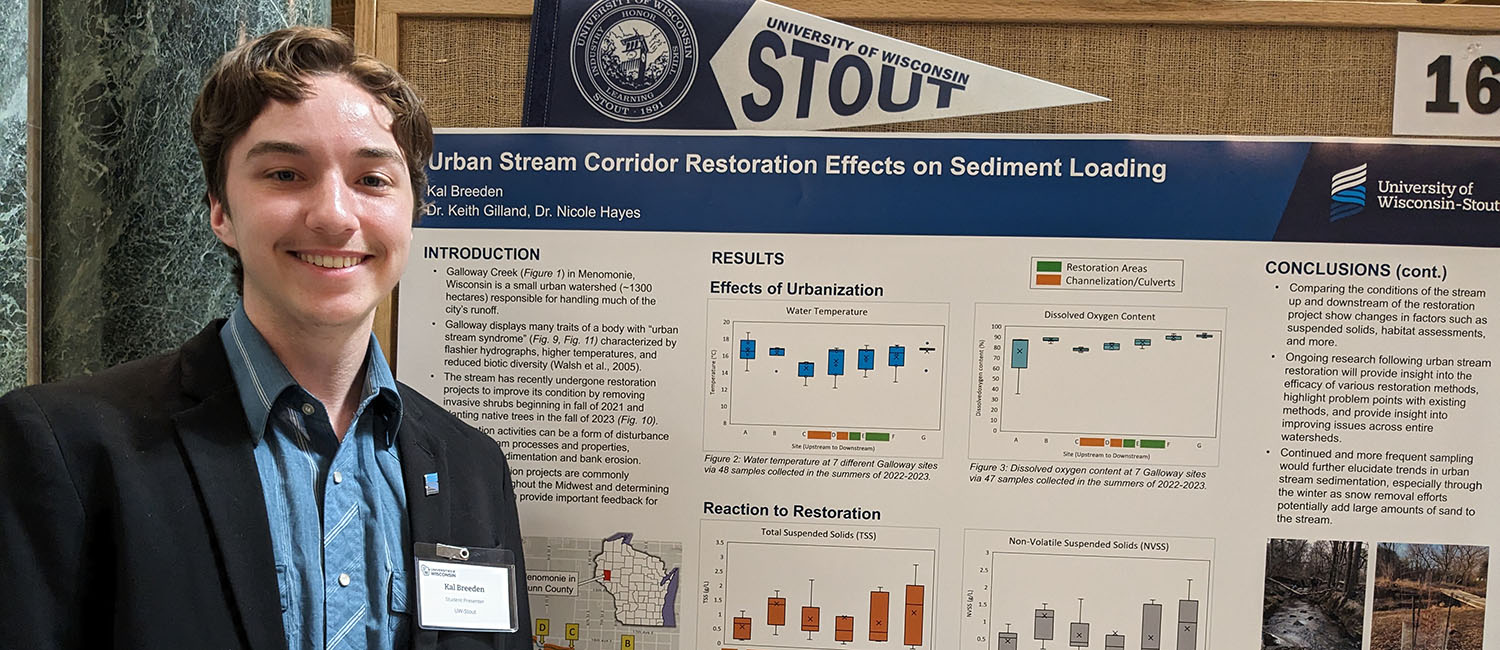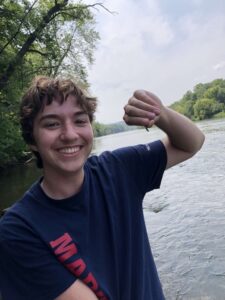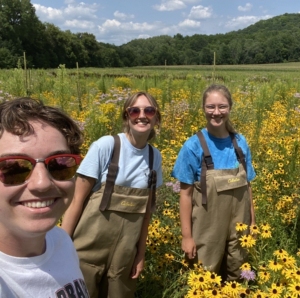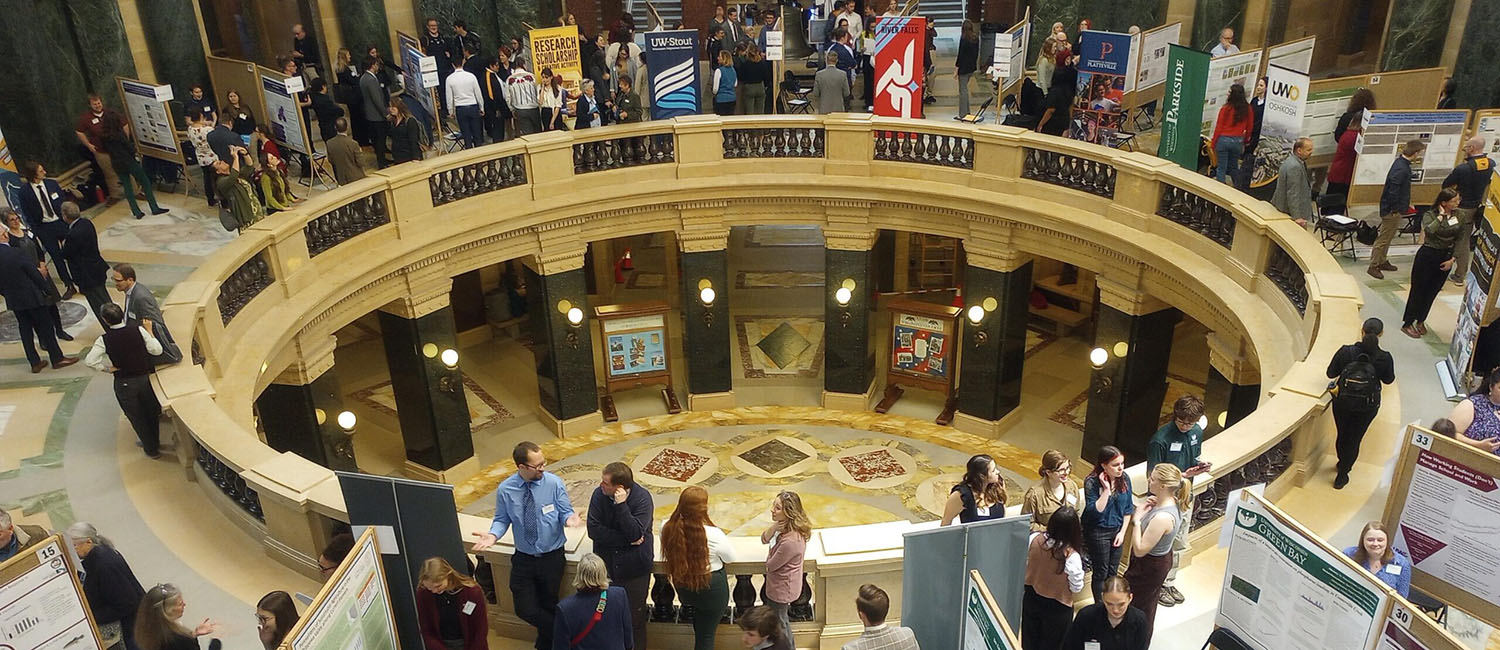The 2024 Research in the Rotunda featured 16 Freshwater Collaborative-funded research projects. Students shared more about their experience.
Student: Sarah Baughman
University: UW-Green Bay
Major: Biology with emphasis on Conversation and Ecology
Expected graduation date: May 2025
Mentor: Erin Giese
Summarize the research and your role.
My research focused on coastal bird use of small to medium-sized stream mouths along the western Lake Michigan shoreline. The findings of this project are intended to inform restoration projects and contribute to research on lesser known and understudied creeks and streams around the Great Lakes. I took part in all phases of this project, so I was able to gain experience with proposal development, volunteer outreach and coordinating, site scouting, surveying, data collection and analysis, report writing, and presentation of results.
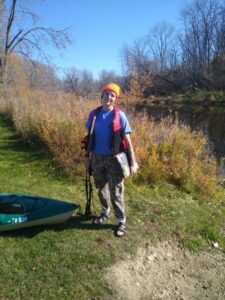
What skills did you learn?
As an undergraduate student, I’ve had the privilege of holding a variety of roles in this project and I learned something with each phase. I gained experience with writing a proposal, communicating with advisors and volunteers, and protocol development. I gained self-confidence as I navigated communicating the goals of this project to others and asking for access to private lands. My bird identification skills have increased, and I have felt capable of joining other bird-related research projects. In presenting at Research in the Rotunda, I was able to break through anxieties about public speaking, and I am now a more confident and thorough communicator. All of this to say: I have learned so much.
What has been your favorite part about this experience?
Seeing my personal evolution from the start of this project to the present and encouraging other students to embrace similar opportunities.
What are some of the opportunities you’ve had because of this research?
Bird researcher for the Great Lakes Coastal Wetland Monitoring Program; student research presenter at multiple symposia and conferences including the Chancellor’s Open House in 2023; Audubon Fly-In in Washington, DC; Cat Island Piping Plover Conservation Team Member.
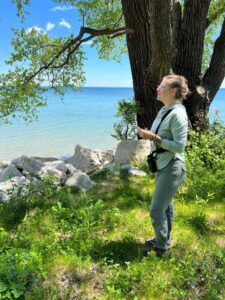
What kind of career do you hope to go into after graduation?
Wildlife biologist; volunteer outreach; researcher and field team leader
How will this experience help you attain your career goals?
This experience has strengthened my confidence and communication skills; a foundation I can build future career choices on. I am a more competitive undergraduate student than I would have been without this experience.

